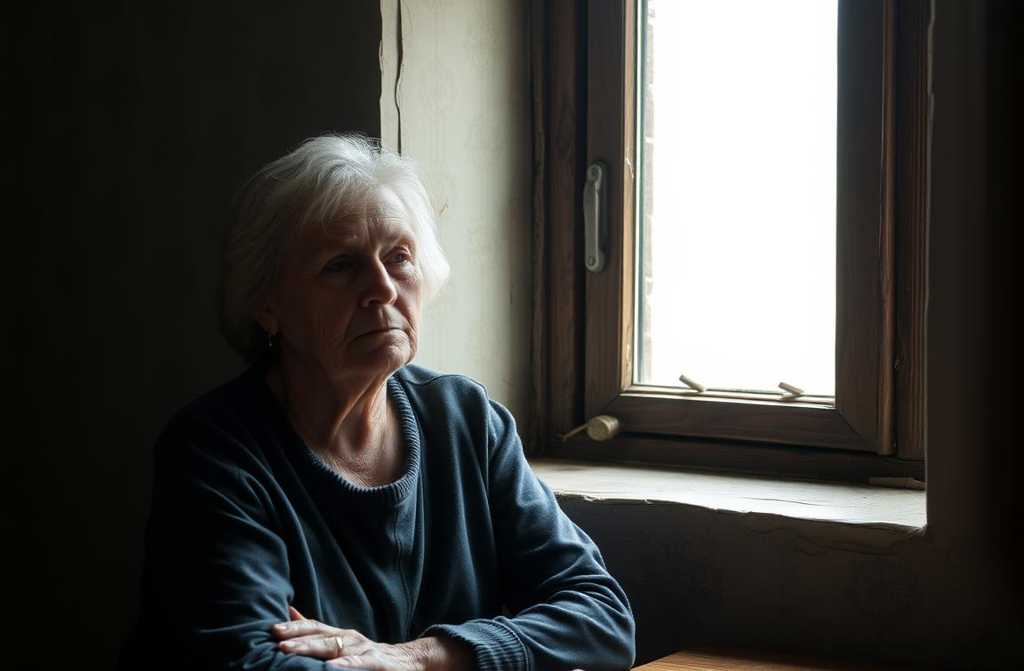**Diary Entry A Fork in the Road**
*12th March, 2024*
“You can always go back to your village,” John said when I lost my job. His words hung in the air like a slap.
“Emma, why so quiet? Your soups getting cold.” He tapped his spoon against the edge of the bowl, eyeing me with thinly veiled impatience. I pushed my phone aside, exhausted. All day, Id called contacts, scoured job listingsnothing. Just polite rejections: *No openings. Budget cuts. Try again later.*
“Sorry, I was thinking,” I murmured, picking up my spoon. Id made the leek and potato soup just how he liked it, with extra thyme. Now it tasted like ashes.
“About work again?” John blew on a steaming spoonful, barely glancing at me.
“What else?” I sighed, pushing my bowl away. “Sarah says her departments downsizing too. And Jenny from accountings been jobless for months.”
“Stop worrying,” he said, waving a hand. “Youll find something. Theres no rush.”
“John, Im forty-three. Who hires at my age? Its all graduates nowtech-savvy, fluent in Excel. My whole career was at Tesco. What else can I do?”
“Nothing wrong with honest work,” he said, reaching for the bread. “Speaking of, this is stale. When did you buy it?”
I didnt answer. The bread was from two days ago. Since the redundancy, Id cut every corner. His construction wages barely covered bills, and even those came late these days.
“Maybe visit your sister in London?” he suggested suddenly. “Stay a fortnight. Clear your head. Ill manage here.”
Molly, my younger sister, worked at some corporate firm. We only spoke at Christmas.
“Why would I go there? Shes got her own life. And we cant afford the train fare.”
“Well manage. Or” He stood, staring out the window. “Why not stay with your mum? In Devon. At least theres fresh milk, homegrown veg. You wont starve.”
I froze. Mum lived in a dying village called Millbrook, two hours away. The last time Id visited was three years ago, for Uncle Franks funeral. The place was half-empty now, just pensioners and boarded-up cottages.
“Youre serious? Send me off to Devon?”
“Youre twisting my words! I just thoughta change of scene. I cant drop work and come with you. Someone has to pay the mortgage.”
“For now,” I muttered.
“Bloody hell, Emma!” He spun around, scowling. “Im trying to help! Stay a month or two. Maybe somethingll turn up here.”
“And what am I doing now? Sitting idle?” I stood, clearing the table. “Who cleans? Cooks? Waited in A&E for hours when your back went out?”
“Thats different,” he muttered. “Justjust think about it.”
His tone cut deeper than the words. *Go back to your village.* As if our twenty years here meant nothing. As if I were some temporary guest in his life.
That night, I lay awake, replaying our early daysme at twenty-three, fresh from Devon, working checkout at a corner shop. John, all charm, bringing me coffee on breaks. Our first flat, the mortgage, promotions. Now? Hed packed me off like unwanted luggage.
I called my daughter, Lily, half-regretting it when she answered, groggy.
“Mum? Its midnight. Whats wrong?”
“Nothing, love. Just missed you.”
“You sound odd. Is Dad alright?”
I swallowed the truth. “Everythings fine. Sleep well.”
Next morning, John brought me tea in bed, all contrition. “Found a leadSandras firm needs a payroll clerk. Maybe take a course?”
“Courses cost money.”
“Well figure it out.”
But the job boards mocked me: *Sales assistant (under 30). Marketing exec (Excel proficiency). No applicants over 40.*
My old colleague, Hannah, confirmed the gloom: “Theyre closing our Tesco branch. More layoffs next week.”
That evening, I told John Id visit Mum.
“How long?” he asked, not looking up.
“A week. Maybe longer.”
“Good. Ill finally fix the shed.”
“The shed youve been fixing since last summer?”
“Exactly. Faster without you micromanaging.”
Another wound. *Without you.*
I packed lightjeans, jumpers, a waterproof. At the bus stop, John kissed my cheek. “Call when you arrive.”
Mums cottage smelled of woodsmoke and baking. “Shouldve warned me!” she fussed. “Id have made a roast.”
“Spur of the moment.”
She studied me. “Wheres John?”
“Work. Hell visit soon.”
She knew better than to press. The house was smaller than I remembered, the ceilings lower. That night, over chicken stew, she asked, “Do you miss him?”
Strangely, I didnt. Here, there were no spreadsheets to update, no silent dinners. Just the wind in the apple trees.
Village life revealed its truths. Mrs. Whitlow, my old teacher, now eighty, lived alone. “Children visit once a year,” she said, knitting by the fire. “We raised them to expect everything. They never learned to give back.”
Mum, too, dismissed moving in with us: “I wont be a burden.”
When John called, his voice wavered: “When are you coming home?”
“Im not sure.”
“Dont be daft. The house is a mess without you.”
“You said youd manage.”
A pause. “I messed up. Come back?”
But the words rang hollow. That night, I asked Mum, “What if I stayed?”
She frowned. “Is that what you want? Or just spite?”
“I dont know. But here I feel like myself.”
John arrived unannounced four days later, shifting on the garden path. “Had enough of playing farmer?”
“Im not playing.”
“Emma, enough! Weve a life in Birmingham.”
“A life where Im expendable?”
“Youre twisting”
“Would you stay if our roles were reversed?”
Silence.
I shook my head. “I need time. To remember who I am without you.”
He left, bewildered. Mum sighed. “He mightve learned his lesson.”
“Maybe. But Ive learned mine too.”
The next morning, I applied for a cleaners job at the village school. The pay was meagre, but the air smelled of earth, not regret. For the first time in years, I was home.







